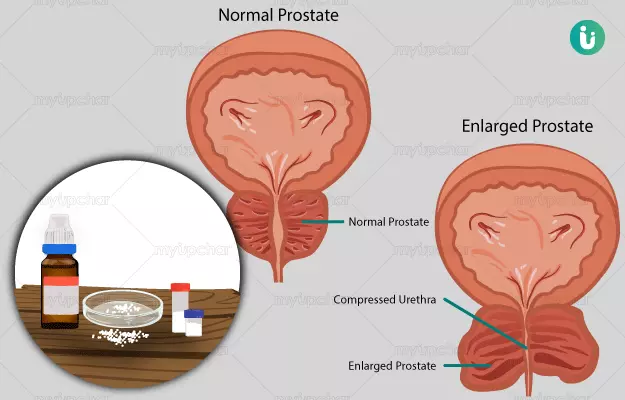Prostate is a small walnut-shaped gland that surrounds the urethra in men. It is an important part of the male reproductive system. The prostate secretes a fluid that forms part of the semen and helps keep the sperms alive in the female reproductive tract. Enlargement of the prostate gland also called benign prostate hypertrophy (BPH) or benign prostatic hyperplasia can constrict the urethra, leading to urinary problems. It can also affect the sex life of the person.
Enlarged prostate is common in men aged over 50 and about 90% men above the age of 80 years develop this condition. BPH is not a form of cancer and usually does not cause a serious threat to health nor does it increase the risk of prostate cancer.
The exact cause of prostate enlargement is unknown. However, factors related to ageing, changes in the testicular cells as well as testosterone levels and family history are observed to play a role in the growth of the prostate gland. BPH is conventionally treated through medications and surgery.
Homeopathy is an alternative system of treatment that is based on the theory of individualisation. Homeopathic doctors consider the specific symptoms shown by an individual along with their health history, genetic history and psychological features before prescribing them a remedy. These remedies are prepared from highly diluted natural substances and hence have almost no side effects. Medications including baryta carbonica, chimaphila umbellata, conium maculatum, digitalis purpurea, lycopodium clavatum, sabal serrulata, staphysagria and thuja occidentalis are used for the treatment of benign prostatic hyperplasia.



























